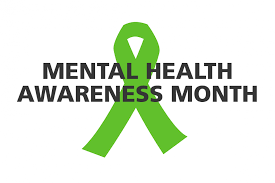There is no denying that a mental health stigma exists. People who suffer from depression, anxiety, obsessive thoughts, or even psychosis sometimes feel the pressure of that stigma so greatly, they fail to talk to anyone about it and, in effect, deny themselves treatment that can help them feel better.
Nurses have a pulse on this particular health issue that makes patients feel especially vulnerable. On May 30, everyone is invited to join a Twitter chat about mental health issues hosted by the American Foundation for Suicide Prevention. At 2 pm EDT, you can use #MHMChat to follow and participate with many top associations and organizations who are closing out Mental Health Awareness Month with the conversation.
Mental Health America is an excellent resource for nurses who want to refer their patients to ways they can take steps for better mental health or also to find ways to improve their own. Those interested in finding out steps they can take to care for their mind and body to help support mental health will find suggestions through the Fitness4Mind4Body campaign. Tips on diet and nutrition (like ensuring proper nutrition and even the importance of certain vitamins and minerals) or the role of stress in mental health can offer effective pointers.
As a nurse, you can ask questions and really listen to your patients to determine if they are struggling with mood changes or psychological struggles. Maybe they don’t admit to feeling sad, but they comment about snarling at colleagues. Or a patient who admits to having trouble sleeping and then can’t get out of bed in the morning for work or other commitments might be trying to reveal information without admitting to mental health struggles. Still others, who might feel a general unease or fear for example, might not even know they are having real problems that can be helped with treatment.
This is also a good time to take stock of your own mental health. Nurses are under enormous stress on the job and don’t always get a chance to eat well, sleep much, or exercise at all. All of those factors can contribute to compassion fatigue, anxiety, depression, and a general decline in mental health.
Luckily, as many work to reduce the stigma of mental health issues, help remains available. Even for patients who live in remote areas, help can be found online or over the phone if they have those connections. The National Institute of Mental Health offers information for getting help that can be accessed by many.
As the month comes to an end, reach out to people in your life to help them if they are struggling. If you are struggling, show yourself some compassion and get help. The results can be life changing.
- WOC Nurses Week Highlights Specialty - April 16, 2024
- Honoring Radiology Nurses Day on April 12 - April 12, 2024
- Travel Offers New Career Possibilities - April 8, 2024



